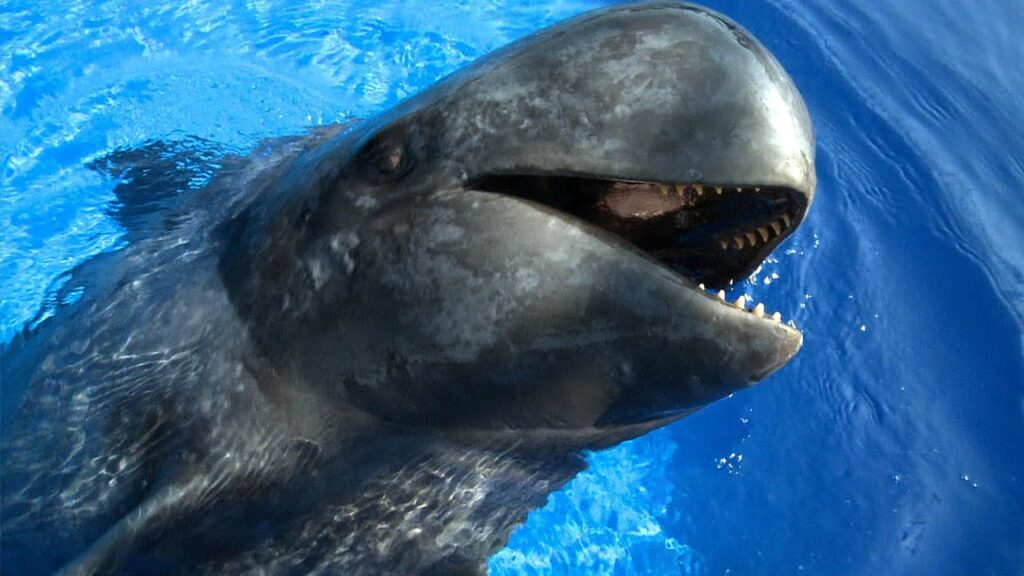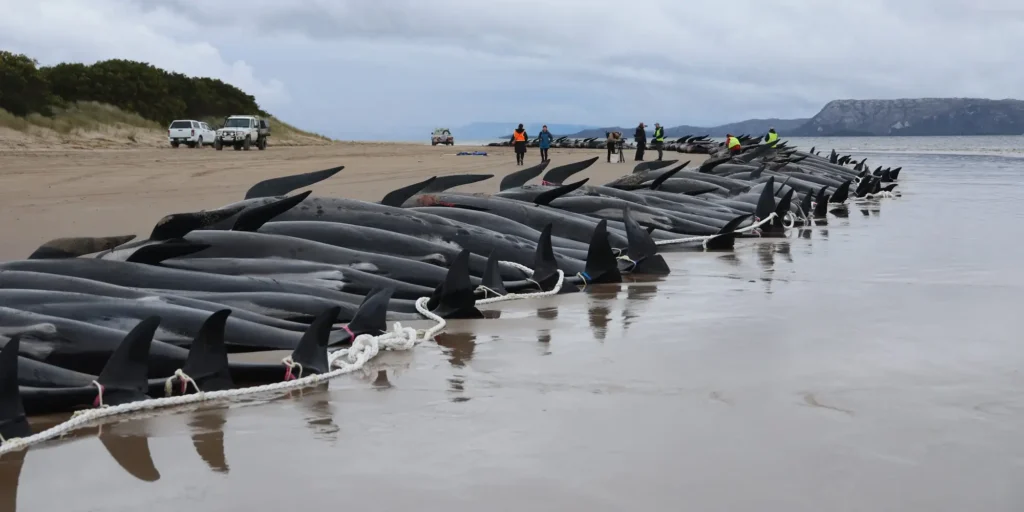By: Mihika Rajeev
Stranded on a Tasmanian beach, about 200 pilot whales died. Luckily, rescuers were able to move thirty-two to deeper waters. However, the exposed conditions of the Australian coasts have led to many incidents like this.

Many people are working to make sure that this never happens again including Brendon Clark, the incident controller. While they got some of the cetaceans to safety, the rescuers are still watching out in case they get stranded again. Taking no chances, Clark reassures everyone, “We will be doing patrols ourselves both via air reconnaissance and also harbor sweeps via vessel.” Unfortunately, pilot whales were already endangered animals and to see two hundred of them dead on a beach is devastating. Hunted for oil, meat, fertilizer, and their bones even today, it’s no surprise that their population has decreased.
Stranding of Whales
The pilot whales can be categorized into two groups: long finned and short finned. A day before, some sperm whales were found stranded on another Tansmanian beach; more than a dozen were dead. The stranding of whales on shores is disastrous for more than just the species. Without whales, krill would eat too much phytoplankton, which are producers in the ocean, thereby speeding up climate change. Delicate and fragile as the food web is, removing one species would be catastrophic and result in the extinction of multiple other organisms. Strandings like these must be prevented to keep the food web stable.
Wildlife scientist, Dr. Vanessa Pirotta explained that while they didn’t know for sure what caused these strandings, “Because this has been the same species, same location, same time, is it the case that there might be something environmental about the area – mis-navigation or a topography hazard. It could also be a sick individual that may have led the whole pod astray.”
With both strandings having so many similar features there are certainly patterns between them, but scientists don’t have enough information to figure out a specific cause. Until then, it is clear that many people are working hard to prevent these disasters from happening again.
Hopefully, in the future there will not be any more catastrophes like these which take the lives of hundreds of animals. If not prevented, strandings like the ones in the past few years could tip the fragile balance in the world.


